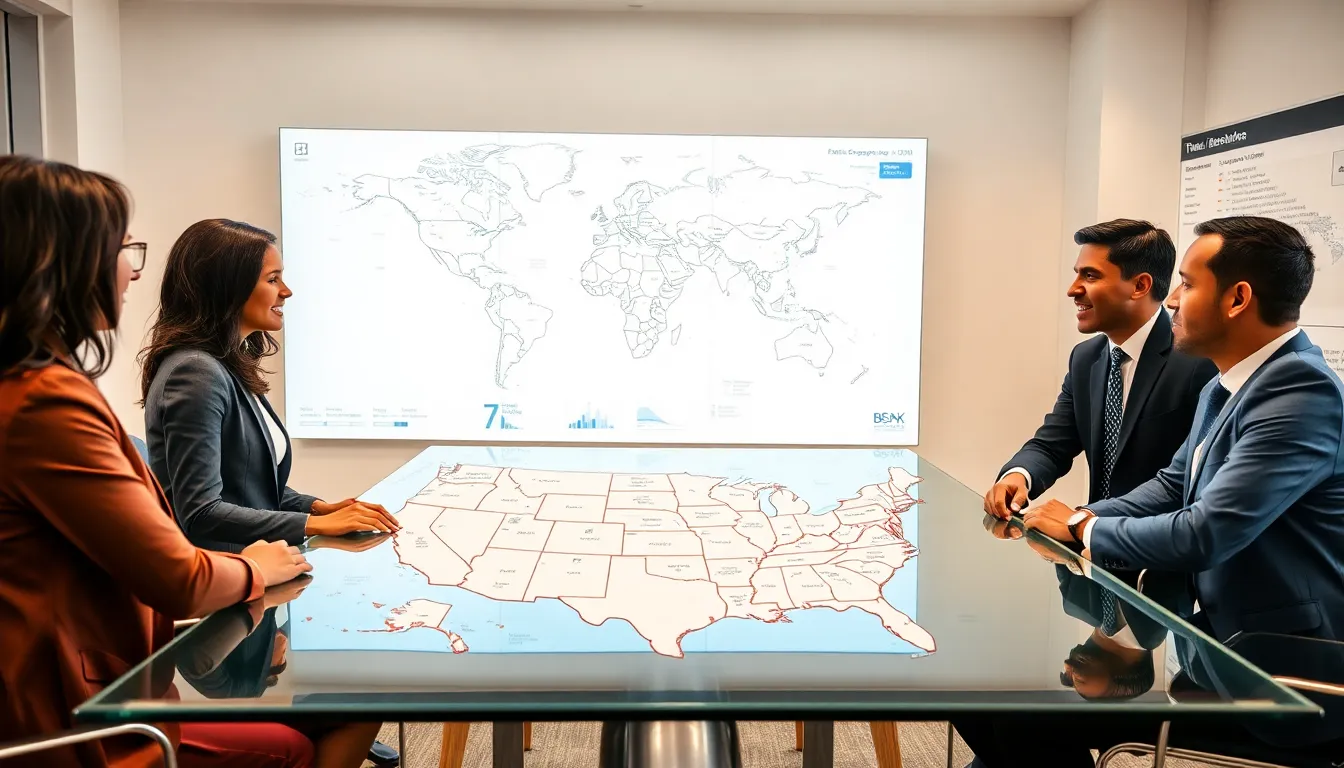Table of Contents
TogglePolitical geography dives into the fascinating interplay between geography and political processes. Curious about how mountains shape nations or how borders impact identity? This field explores everything from the formation of states to the cultural dynamics at play within their boundaries. So strap in, because the next time you stare at a map, you might just see more than lines and labels, you could witness the very essence of power dynamics in action.
Overview of Political Geography

Political geography examines how space and place influence political phenomena. It bridges the gap between geography and political science, examining how environments shape state behavior and the experiences of individuals, social groups, and societies. You might think political geography is all about maps, but it’s so much more than that. This discipline delves into the territorial aspects of political behavior, exploring boundaries, geopolitics, and the spatial structures that influence governance and politics on both the national and international levels.
Key Concepts in Political Geography
Several key concepts underpin political geography.
Territoriality
Territoriality is fundamental in this field. It relates to how individuals and groups assert control over geographic space, redefining boundaries and territories often involves conflicts and negotiations.
Sovereignty
Sovereignty emphasizes the authority of a governing body over a specific geographic area. It involves political power, legal jurisdiction, and the ability to make laws. Sovereign states are recognized as possessing this power, but the concept is continually challenged by internal and external influences.
Nation and State
While often used interchangeably, a nation refers to a group of people sharing common cultural characteristics, while a state is a political entity with defined territorial boundaries and governance. This distinction is crucial for understanding many global conflicts, such as those seen in multi-ethnic regions.
Geopolitics
Geopolitics studies the effects of geography on international politics. It examines how geographical factors, such as resources or location, shape relationships among nations. For instance, strategizing trade routes or assessing security risks often depends on geographic considerations.
Historical Development of Political Geography
The field of political geography emerged in the late 19th to early 20th century. Early scholars like Richard Hartshorne and Halford Mackinder laid down the foundation by exploring how geography informs global power structures.
The 20th century saw political geography evolve alongside turbulent global events like World Wars and the Cold War. Geostrategic concerns arose from territorial disputes and resource allocation, marking political geography’s growing relevance. After the Cold War, scholars began to investigate the role of belief systems, ethnicity, and transnational issues, paving the way for new debates about global citizenship and the impact of globalization.
In contemporary discourse, political geography has also embraced technology and data, utilizing GIS (Geographic Information Systems) for spatial analysis, demonstrating its adaptability to modern challenges.
Major Theories and Approaches
Several theories frame the study of political geography.
Environmental determinism
This outdated perspective suggested that environmental factors solely determine human behavior. But, scholars have increasingly challenged this view, recognizing that agency and decision-making play critical roles.
Critical geopolitics
This approach examines how political leaders and policy-makers construct geographical narratives to legitimize political agendas. It’s about understanding the stories told about places and their implications for power dynamics globally.
Feminist political geography
Emerging in the late 20th century, this perspective critiques traditional political geography for often sidelining gender issues. Feminist scholars highlight how space and power intersect with gender, offering a more inclusive lens on political dynamics.
Contemporary Issues in Political Geography
Today’s political geography grapples with numerous pressing issues.
Globalization
The interconnectedness of the world has reshaped political landscapes. Regional blocs, trade agreements, and technology play pivotal roles in how states interact.
Climate change
Political geographers are increasingly focused on how climate change affects territorial disputes, migration, and national security. As resources become scarce or regions become uninhabitable, new geopolitical challenges arise.
Nationalism and identity
In an era of rising nationalism, understanding how identity shapes political affiliations and territorial claims has become essential. Political geography helps unpack these identities, often revealing deeper complexities behind public sentiments.
The Role of Political Geography in Global Affairs
Political geography plays a crucial role in global affairs by informing policies and strategies at multiple levels. By analyzing spatial dimensions, policymakers can make more informed decisions about international relations, conflict resolution, and environmental policies. Geographic contexts give rise to new possibilities, helping nations forecast outcomes in an increasingly globalized world. From trade negotiations to international alliances, political geography remains a vital framework for understanding how geography influences diplomacy and cooperation.



